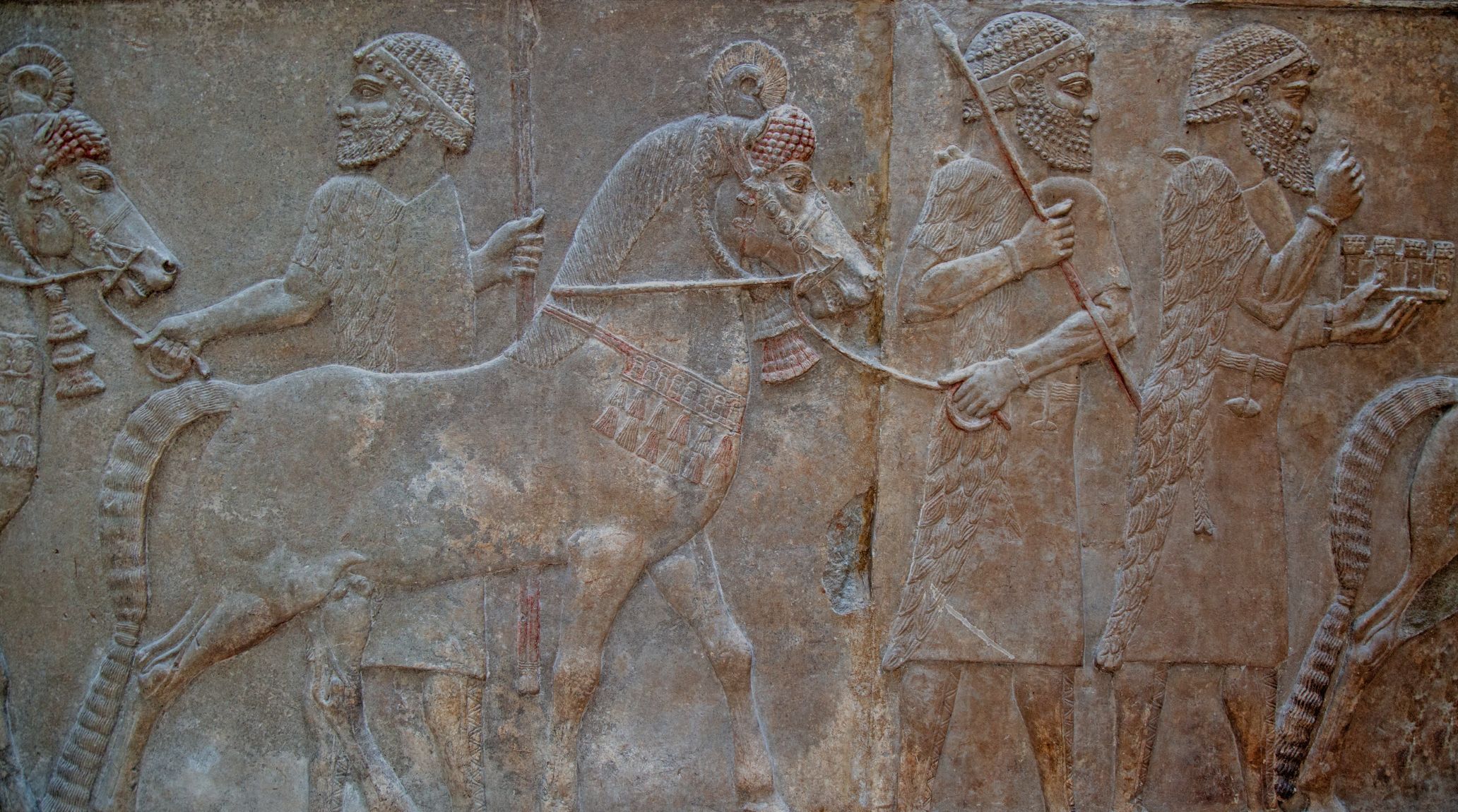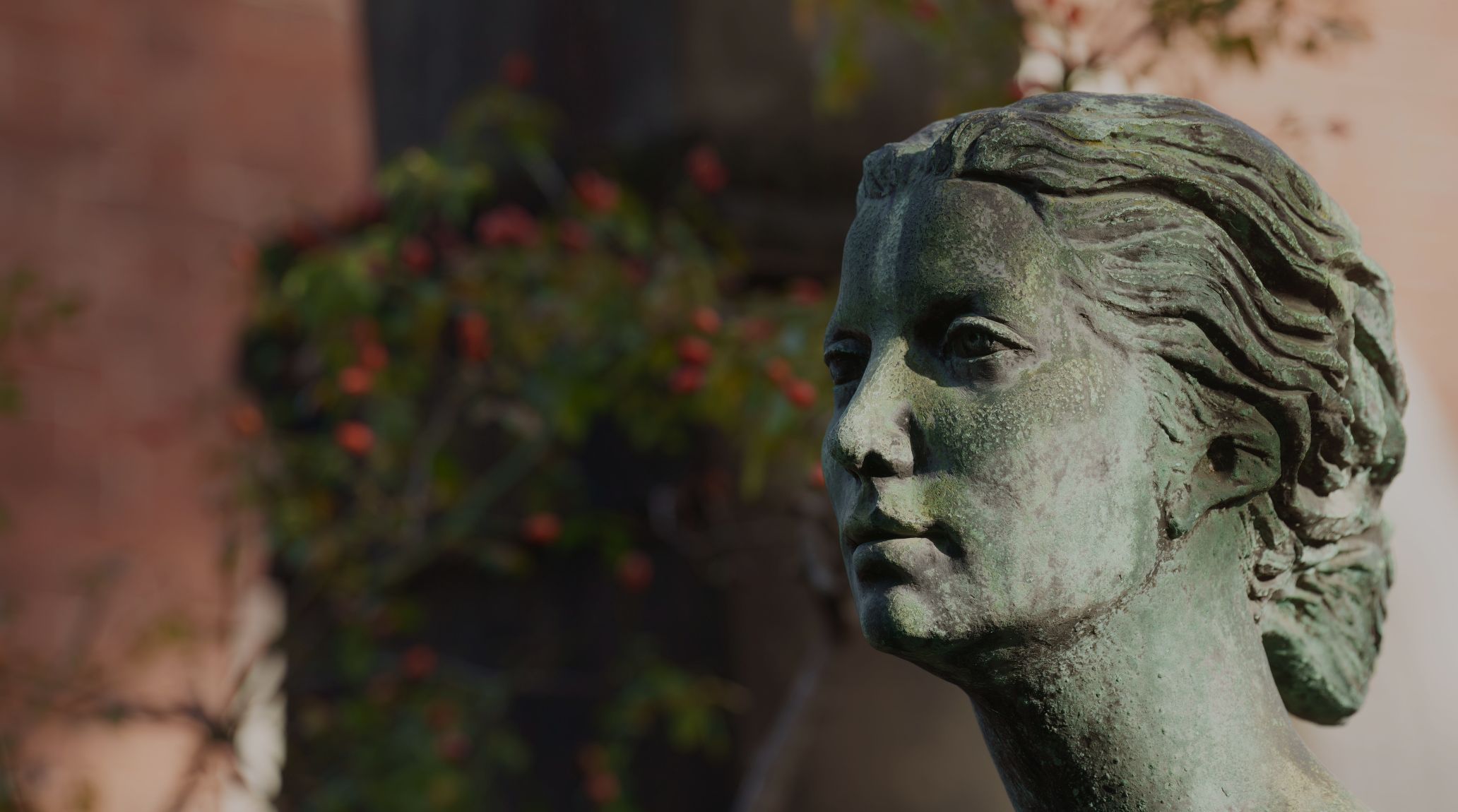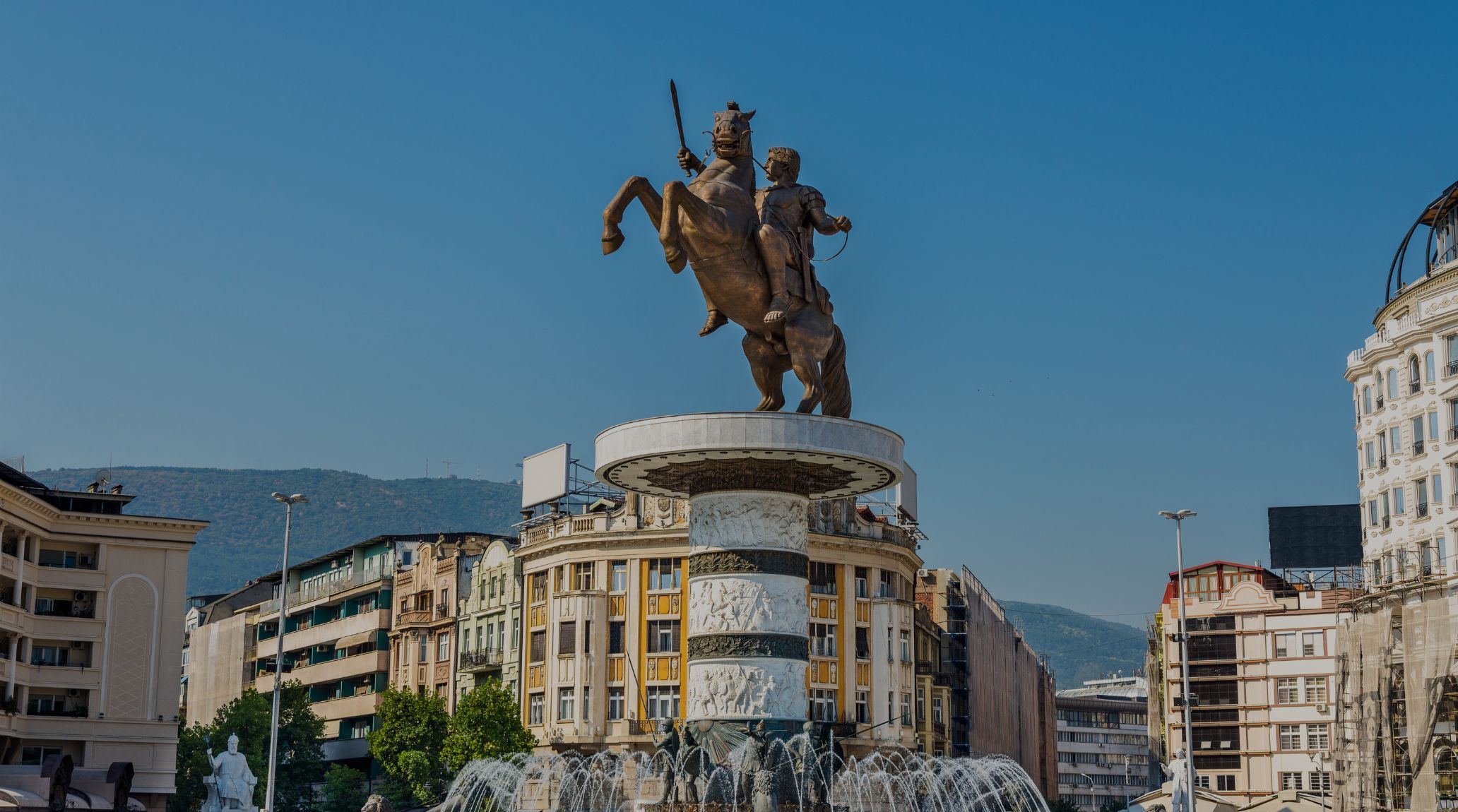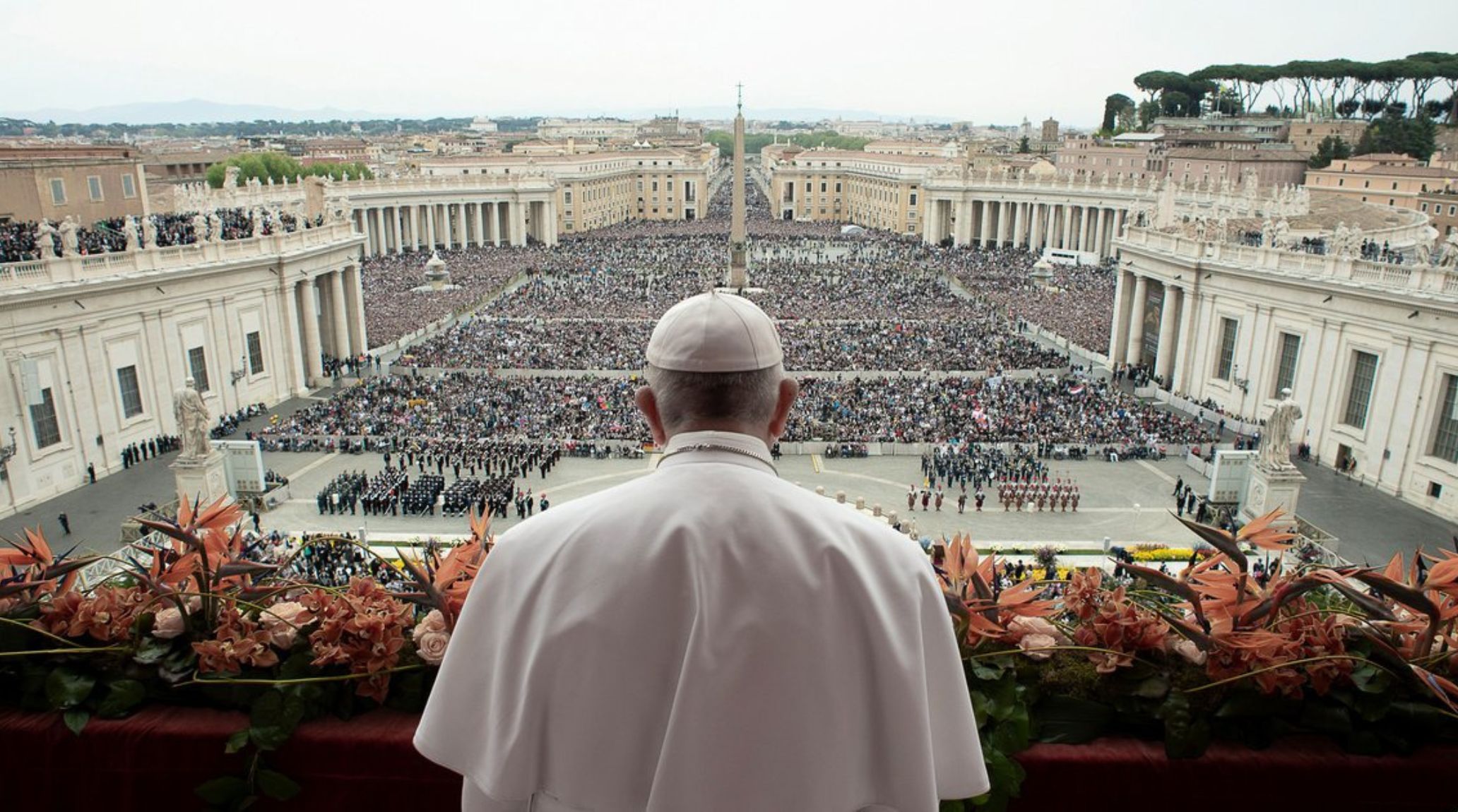
“
The Papacy has long been a central institution in global history, wielding immense spiritual and political influence. During the medieval era, the Church played a crucial role in shaping European politics, forming alliances, and influencing monarchs. This factsheet explores key insights into The Papacy and the Church’s Political Power, highlighting its strategies, conflicts, and the profound impact it had on governance and society. 1
1
”
During the 12th and 13th centuries, the Papal Monarchy emerged, with powerful popes reforming institutions, building new ones, and advancing the ideology of papal leadership with confidence and authority. 1
Pope Leo I (440–461 CE) asserted papal supremacy by negotiating with Attila the Hun to spare Rome, showcasing the Pope’s dual role as a religious leader and a political diplomat. 2
The Donation of Pepin (756 CE) established the Papal States, granting the Pope temporal authority over central Italian territories, marking the beginning of the Church's direct involvement in governance. 3
Gregory the Great (c. 540–604), pope from 590 to 604, was a reformer and administrator, founding the medieval papacy that wielded both secular and spiritual authority. His legacy remains significant. 4
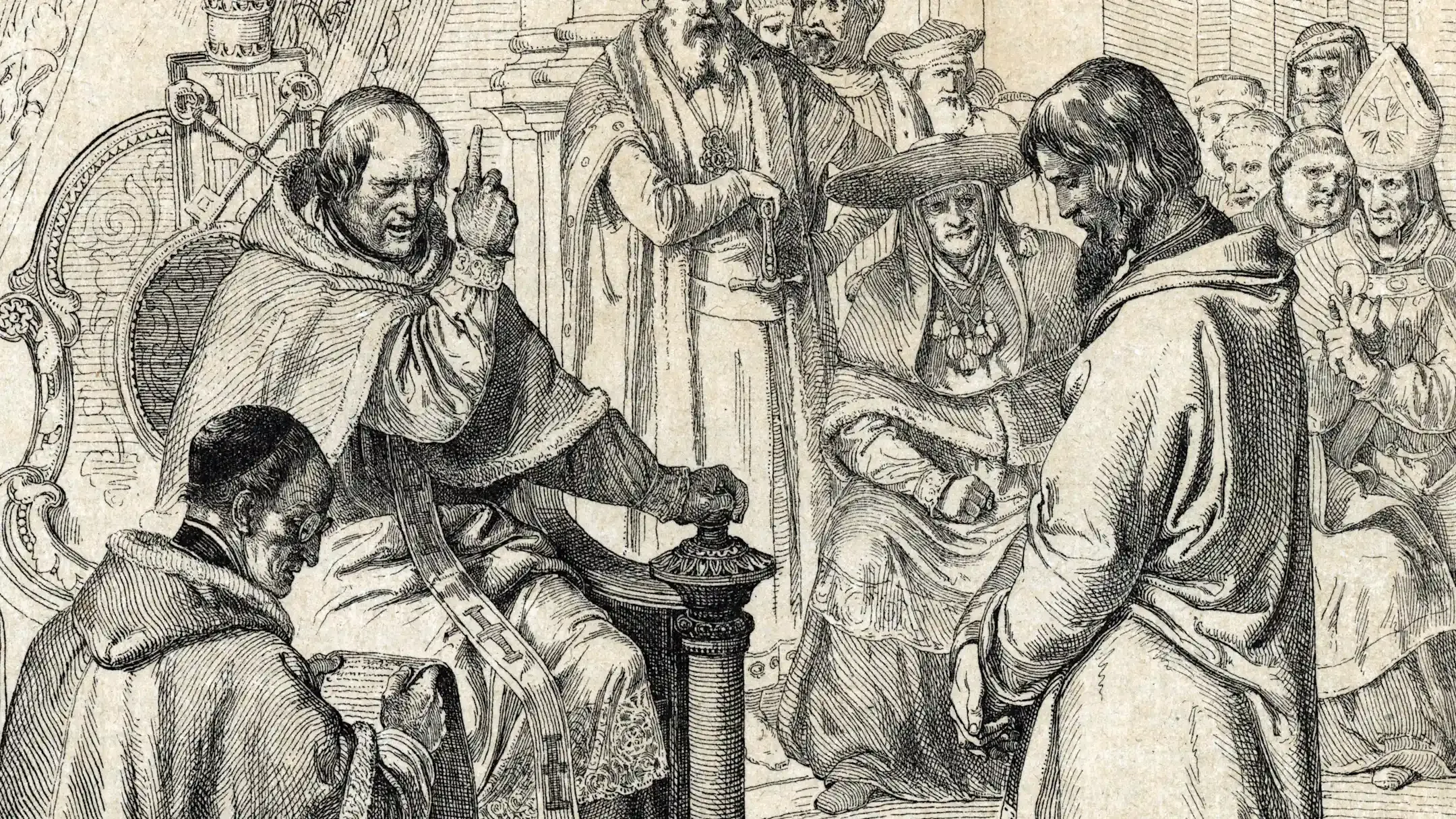
The Investiture Controversy, a major 11th and 12th-century conflict, involved popes and Holy Roman emperors battling over the authority to appoint bishops within the Holy Roman Empire, lasting several decades.
The Concordat of Worms (1122) resolved the Investiture Controversy, affirming the Pope’s authority in spiritual matters while allowing monarchs limited input, redefining Church and state relations in medieval Europe. 5
The Papacy orchestrated the Crusades (1095–1291), mobilizing European monarchs and armies to reclaim the Holy Land, demonstrating the Church’s ability to unite Christendom under a common political and religious cause. 6
Pope Innocent III (1198–1216) claimed supremacy over all European monarchs, intervening in disputes, excommunicating kings, and influencing major events like the signing of the Magna Carta in England. 7
The Avignon Papacy (1309–1377) saw Popes residing in France, leading to accusations of French royal influence and diminishing the Church’s impartiality in European politics. 8
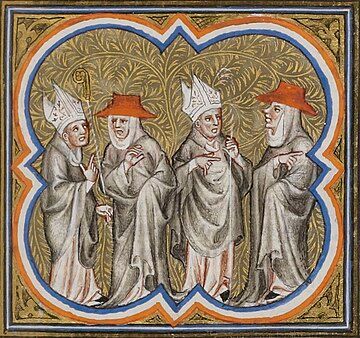
The Western Schism (1378–1417) divided the Catholic Church with rival popes in Rome, Avignon, and later Pisa claiming legitimacy, creating a prolonged conflict that undermined papal authority and unity within the Church.
Following the Western Roman Empire's fall, Pope Gregory I (c. 540–604) provided authority and continuity, leading strict church reforms. From a senatorial family, he governed with Roman discipline and judgment. 9
The Fourth Lateran Council (1215) under Pope Innocent III established Church doctrines, regulated clergy, and expanded papal authority, reflecting the Church’s comprehensive influence over medieval European life.10
The Papacy’s control over canon law allowed it to shape legal systems across Europe, influencing civil and ecclesiastical courts and integrating religious principles into secular governance. 11
The Pope's excommunication power was a formidable political weapon, as demonstrated by Pope Gregory VII’s excommunication of Emperor Henry IV during the Investiture Controversy. 12
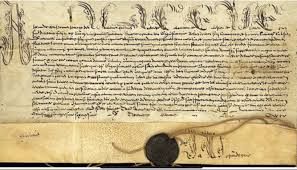
Papal bulls, such as Unam Sanctam (1302), declared the Pope’s ultimate authority over spiritual and temporal matters, further asserting the Church’s dominance in medieval Europe.
The Council of Trent (1545–1563) reaffirmed papal authority during the Counter-Reformation, solidifying the Pope’s control over doctrine and addressing corruption within the Church. 13
The Papacy played a vital role in shaping diplomacy, acting as a mediator in treaties, alliances, and conflicts, often influencing the outcomes of major European political events. 14
Pope Alexander VI (1492–1503), a controversial figure, exemplified the Papacy's political entanglements, using his position to advance the Borgia family’s influence in Renaissance Italy.15
The establishment of the Jesuits by Pope Paul III in 1540 strengthened the Church’s political and educational influence, especially in missionary activities across the New World and Asia. 16
The modern Papacy, while less politically dominant, retains significant global influence, shaping ethical debates, mediating international conflicts, and promoting humanitarian efforts in the contemporary world. 17
